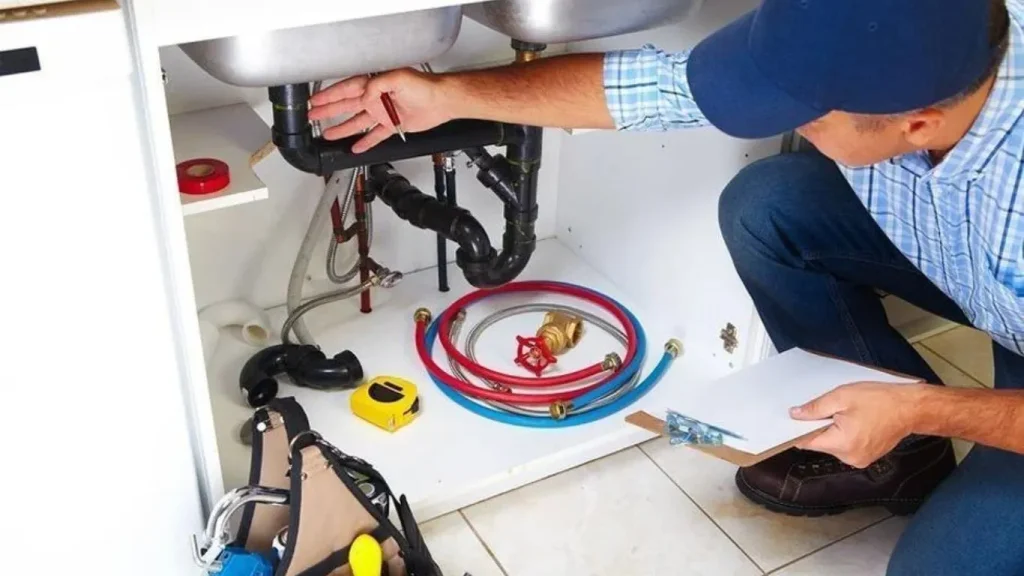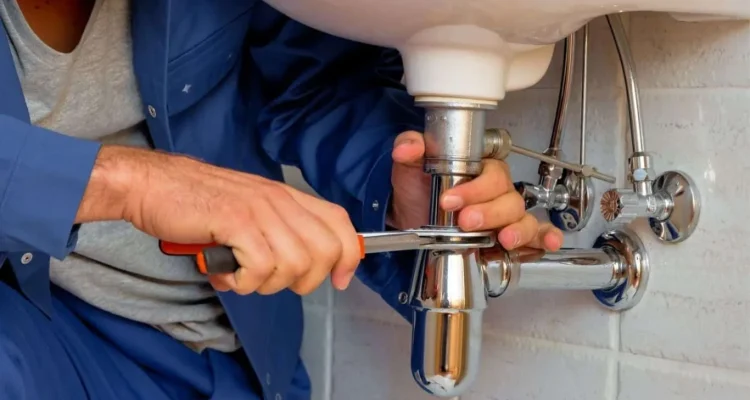Plumbing issues can pop up unexpectedly, turning your day upside down. And when you call a plumber, the bill can be a shocker. But why are plumbers so expensive? Let’s dive into the factors contributing to those high costs.

Training and Education
Becoming a plumber isn’t as simple as picking up a wrench. It involves extensive training and education. Aspiring plumbers often attend trade schools or community colleges, which can be costly. They need to learn about various plumbing systems, safety regulations, and building codes.
Length and Cost of Training Programs
Training programs can last anywhere from a few months to several years, depending on the level of expertise desired. These programs aren’t cheap, and many aspiring plumbers have to foot the bill for their education.
Certification and Licensing Requirements
After completing their training, plumbers must obtain certifications and licenses to practice legally. These credentials aren’t free and require ongoing education and renewals, adding to their overall expenses.
Skill and Expertise
Plumbing is more than just fixing leaks. It requires a high level of skill and expertise. Plumbers need to understand complex systems, diagnose issues accurately, and implement effective solutions.
Complexity of Plumbing Work
From installing new systems to repairing old ones, plumbing tasks can be intricate and challenging. The more complex the job, the higher the skill level required, and this expertise comes at a price.
Troubleshooting and Problem Solving
Plumbers often face unique challenges on each job, requiring quick thinking and problem-solving skills. This level of expertise ensures the job is done right the first time, saving homeowners from further issues down the line.
Tools and Equipment
Plumbers rely on a variety of specialized tools and equipment, which can be quite expensive.
Specialized Tools Needed
From pipe wrenches to video inspection equipment, plumbers need a range of tools to handle different tasks. These tools are not only costly but also require regular maintenance and updates.
Cost of Maintaining and Updating Equipment
Keeping tools in good working condition and staying up-to-date with the latest technology involves significant investment. This cost is factored into the service rates charged by plumbers.
Labor and Time
The nature of plumbing work means that labor and time are significant cost factors.
Hourly Rates vs. Flat Rates
Plumbers typically charge either an hourly rate or a flat rate for their services. Hourly rates can add up quickly, especially for complex jobs that take longer to complete. Flat rates, on the other hand, account for the time and effort required for specific tasks.
Emergency Services and After-Hours Work
Plumbing emergencies don’t always happen during regular business hours. When you need a plumber at odd hours or on weekends, the rates are higher due to the inconvenience and urgency of the situation.
Insurance and Bonding
Plumbers need to carry various types of insurance to protect themselves and their clients.
Types of Insurance Plumbers Need
Liability insurance, worker’s compensation, and bonding are essential for plumbers. These insurance policies provide coverage for accidents, damages, and other liabilities.
Cost of Insurance Premiums
The premiums for these insurance policies can be substantial, and plumbers need to factor these costs into their service rates.
Overhead Costs
Running a plumbing business involves various overhead costs that contribute to the overall pricing.
Business Expenses (Office, Vehicles, etc.)
Plumbers need a base of operations, whether it’s a home office or a commercial space. They also require service vehicles equipped with the necessary tools and parts.
Administrative Costs
Managing appointments, billing, and other administrative tasks require additional resources, contributing to the overall cost structure of the business.
Supply and Demand
The principles of supply and demand play a significant role in plumbing costs.
Shortage of Skilled Plumbers
There’s a shortage of skilled plumbers in many areas, leading to higher demand for their services. This scarcity drives up the prices as more people compete for the available professionals.
Impact of High Demand on Prices
During peak times, such as winter months when pipes are more likely to burst, the demand for plumbers increases, further driving up costs.
Regional Price Variations
Plumbing costs can vary significantly based on your location.
Differences in Urban vs. Rural Areas
Urban areas tend to have higher costs due to the increased cost of living and operating expenses. In contrast, rural areas might have lower rates, but the availability of plumbers could be limited.
Cost of Living Adjustments
Plumbers in regions with a high cost of living charge more to cover their expenses. This adjustment ensures they can maintain a viable business.
Hidden Costs and Fees
Plumbing services can come with hidden costs and fees that aren’t immediately apparent.
Travel Charges
If a plumber has to travel a significant distance to reach your home, they might charge a travel fee to cover their time and fuel expenses.
Disposal Fees
Disposing of old fixtures, pipes, and other materials can incur additional fees. These disposal costs are often included in the final bill.
Quality of Service
The quality of service provided by professional plumbers justifies the higher costs.
Guarantee and Warranty of Work
Reputable plumbers stand by their work, offering guarantees and warranties. This assurance means you can trust the job will be done correctly, and if not, they’ll return to fix it at no additional charge.
Customer Service and Reputation
High-quality customer service and a solid reputation come with a price. Plumbers who invest in their reputation through excellent service and customer satisfaction often charge more for their expertise.
Value of Professional Plumbing Services
Despite the high costs, professional plumbing services offer significant value.
Long-Term Savings
Hiring a professional plumber can save you money in the long run by preventing recurring issues and ensuring the job is done right the first time.
Prevention of Bigger Issues
Professional plumbers can identify and address potential problems before they become major issues, saving you from costly repairs down the road.
DIY vs. Professional Plumbing
It’s tempting to tackle plumbing issues yourself, but it’s not always the best idea.
Risks of DIY Plumbing
DIY plumbing can lead to mistakes that cause more damage and end up costing more to fix. Lack of expertise and improper use of tools can result in significant issues.
When to Call a Professional
For major plumbing problems or installations, it’s best to call a professional. Their expertise ensures the job is done correctly and safely.
FAQs
Why do plumbers charge a call-out fee?
Plumbers charge a call-out fee to cover their travel expenses and the time spent assessing the problem, even if no immediate work is done.
How can I reduce my plumbing costs?
Regular maintenance, addressing minor issues promptly, and getting multiple quotes for larger jobs can help reduce your plumbing costs.
Are there times of the year when plumbing services are cheaper?
Plumbing services might be cheaper during off-peak seasons when demand is lower, such as late spring or early fall.
What should I look for when hiring a plumber?
Look for licensed and insured plumbers with good reviews and a solid reputation. Ensure they provide clear estimates and guarantee their work.
Is it worth getting a maintenance plan for my plumbing?
Yes, a maintenance plan can help prevent major issues, extend the lifespan of your plumbing system, and save you money on emergency repairs.
Conclusion
Understanding why plumbers are so expensive helps you appreciate the value they provide. From extensive training and expertise to the cost of tools and insurance, many factors contribute to their rates. While the cost might seem high, the long-term benefits of hiring a professional plumber far outweigh the initial expense.


Congratulation!